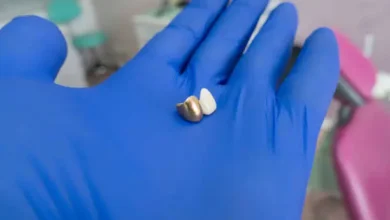Integrating Medical Marijuana into Weight Loss Strategies for Diabetics

Weight management is crucial for individuals with diabetes, as excess weight can exacerbate the condition and increase the risk of complications. However, traditional weight loss methods may not always be suitable for diabetics due to potential interactions with medications and fluctuating blood sugar levels. In recent years, there has been growing interest in the potential role of medical marijuana in managing diabetes and aiding weight loss. This article explores the relationship between weight loss, diabetes, and the use of medical marijuana as a potential adjunct therapy.
Understanding Diabetes and Weight Loss:
Diabetes is a chronic condition characterized by elevated blood sugar levels, resulting from either inadequate insulin production or the body’s inability to use insulin effectively. Type 2 diabetes, the most common form, is closely linked to obesity and lifestyle factors such as diet and physical activity. For individuals with diabetes, achieving and maintaining a healthy weight is essential for managing blood sugar levels and reducing the risk of complications such as heart disease, stroke, and nerve damage.
Traditional weight loss strategies for diabetics typically focus on dietary modifications, regular exercise, and medication management. While these approaches can be effective, some individuals may struggle to achieve sustainable weight loss or experience challenges such as hunger, cravings, and metabolic changes.
Medical Marijuana and Weight Loss:
Medical marijuana, derived from the cannabis plant, contains active compounds known as cannabinoids, including tetrahydrocannabinol (THC) and cannabidiol (CBD). These cannabinoids interact with the body’s endocannabinoid system, which plays a role in regulating appetite, metabolism, and energy balance.
Studies have shown that certain cannabinoids, particularly THC, may stimulate appetite and increase food intake—a phenomenon commonly referred to as the “munchies.” However, emerging research suggests that other cannabinoids, such as CBD, may have the opposite effect, potentially suppressing appetite and reducing food consumption.
In addition to its effects on appetite regulation, medical marijuana may influence metabolism and fat storage. Some studies have suggested that cannabinoids can modulate lipid metabolism, promoting the breakdown of fat cells and reducing fat accumulation in the body. This mechanism could potentially contribute to weight loss and improve metabolic health in individuals with diabetes. If you’re not an expert in weed but still want to experience its benefits, you can try pre rolls made using a jiko infusion machine. This allows even beginners to enjoy the effects of medical marijuana in a controlled and convenient way.
Furthermore, medical marijuana has been associated with improvements in insulin sensitivity and glucose metabolism, which are key factors in diabetes management. By enhancing insulin action and glucose utilization, cannabinoids may help stabilize blood sugar levels and reduce the need for diabetes medications.
Integrating Medical Marijuana into Weight Loss Plans:
While medical marijuana shows promise as a potential adjunct therapy for weight loss in diabetics, it is essential to approach its use with caution and under the guidance of a healthcare professional. Since marijuana can affect blood sugar levels and interact with diabetes medications, individuals with diabetes should consult their healthcare provider before incorporating it into their treatment regimen.
When using medical marijuana for weight loss, it is essential to consider the following:
- Strain selection: Different strains of marijuana contain varying levels of cannabinoids, which can have different effects on appetite, metabolism, and overall well-being. Strains high in CBD and low in THC may be preferable for individuals seeking weight loss benefits without the psychoactive effects of THC.
- Dosage control: Proper dosing is critical to achieving the desired effects of medical marijuana while minimizing potential side effects and risks. Start with a low dose and gradually increase as needed, under the guidance of a healthcare provider.
- Monitoring blood sugar levels: Individuals with diabetes should closely monitor their blood sugar levels when using medical marijuana, as it can cause fluctuations that may require adjustments to diabetes medications or insulin therapy.
- Lifestyle modifications: Medical marijuana should be viewed as one component of a comprehensive weight loss plan that includes dietary modifications, regular exercise, stress management, and adequate sleep.
Conclusion:
Weight loss is an important aspect of diabetes management, and exploring alternative therapies such as medical marijuana may offer additional benefits for individuals struggling to achieve their weight loss goals. While research on the use of medical marijuana for weight loss in diabetics is still in its early stages, preliminary evidence suggests that cannabinoids may have potential therapeutic effects on appetite, metabolism, and insulin sensitivity.
However, it is crucial for individuals with diabetes to approach the use of medical marijuana with caution and to work closely with their healthcare provider to ensure safe and effective integration into their treatment regimen. By combining evidence-based medical advice with personalized lifestyle modifications, individuals with diabetes can optimize their weight loss efforts and improve their overall health and well-being.



